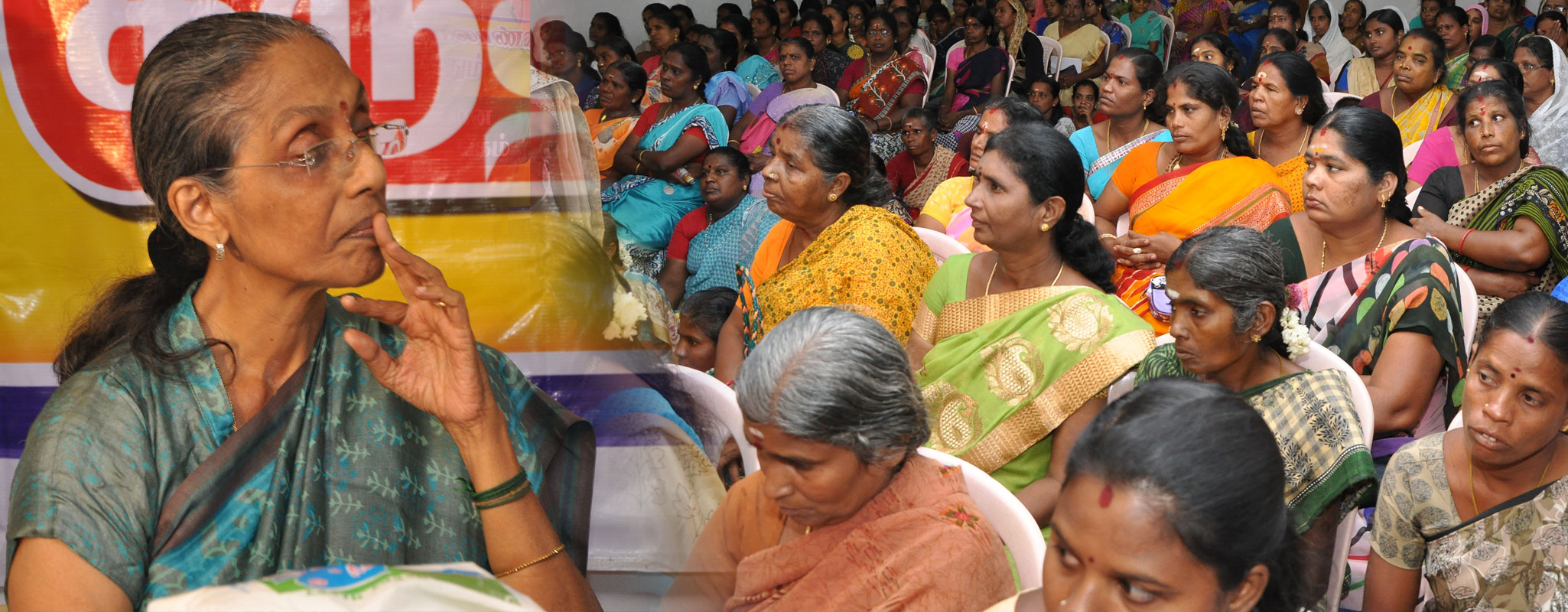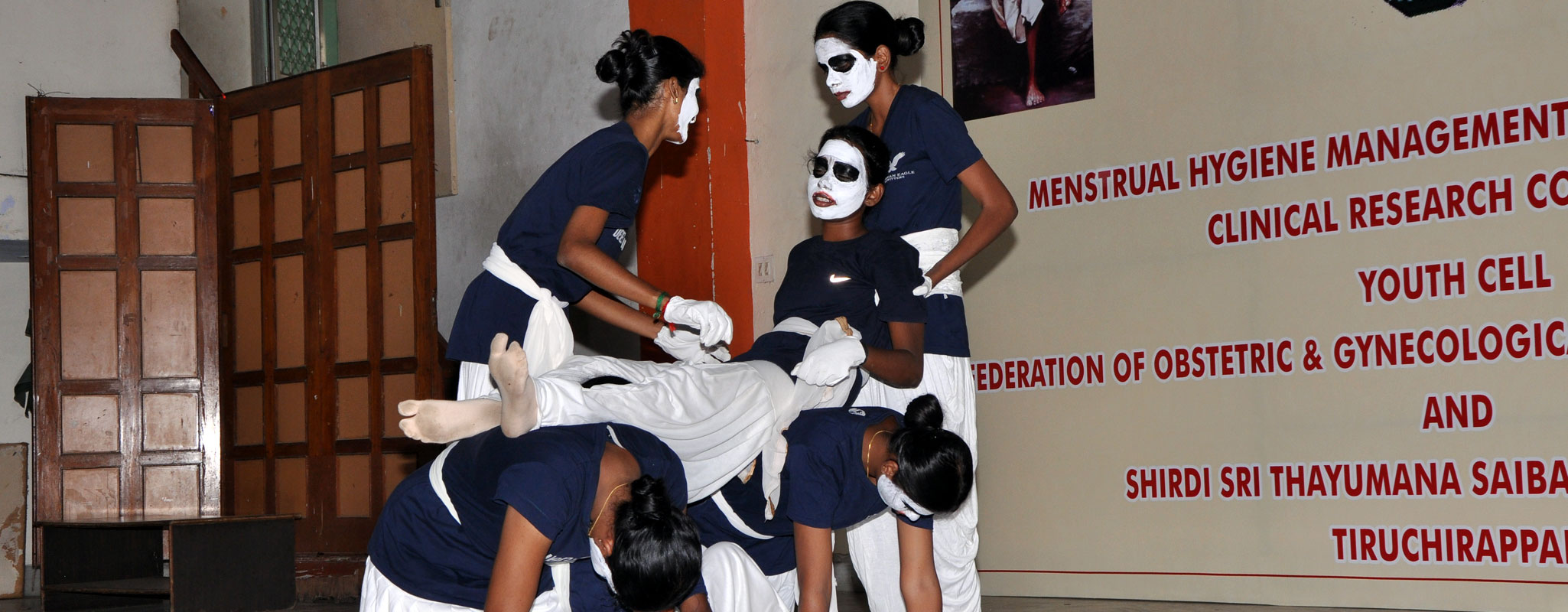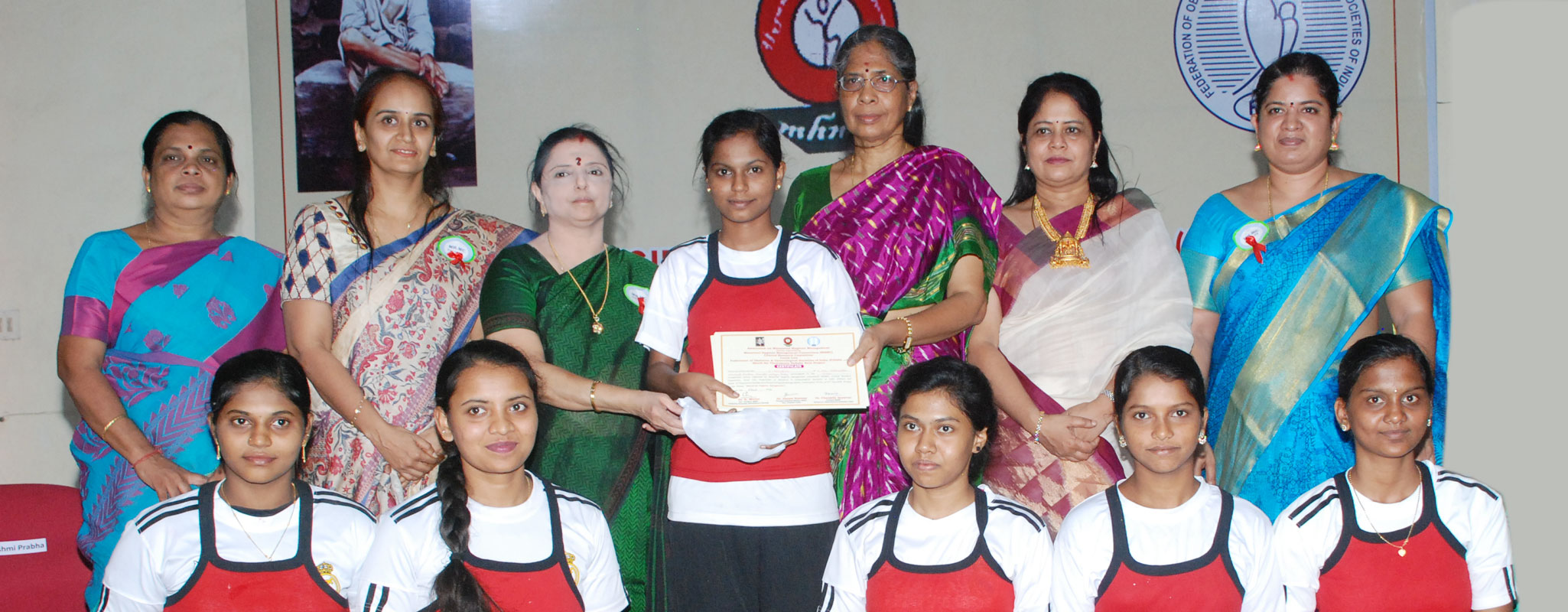Message from VIP's
The Role of Government Officials in Menstrual Hygiene Movement
MHMC Salutes Ms.Shantha Sheela Nair & Ms.Sujatha Rao for Taking up the cause of MHM to the Goverment Level
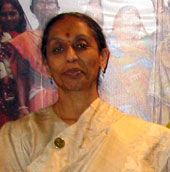
Mrs. Shantha Sheela Nair, I.A.S., Officer (Rtd.)
She initiated women friendly sanitation programs in Trichy region when she was District Collector in Trichy in 1982. She brought the Menstrual Hygiene issue to public discussion. She stressed that training on Sanitary napkins must include training on safe disposal including the use of incinerators. She said that the Rural Development Department also has a major role to paly in the involvement of SHGs in the Menstrual Hygiene initiative.

Ms. Sujatha Rao, I.A.S., Officer (Rtd.)
She made sincere efforts to roll out the scheme of subsidized Sanitary Napkins to Adolescent girls. She said that the SHG model does not have competitive pricing, but it is more empowering, sustainable strategy, provising income to several SHG women. She emphasized that the the issue of disposal of sanitary napkins is critical and technology has to be developed for more effective handling of the used sanitary napkins including its non-biodegradable components.
Message from VIP's
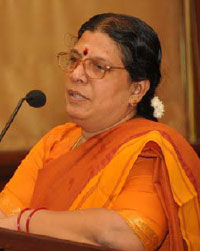
Ms. M.P. Nirmala, I.A.S.,
Sanitation means we normally think of our great leader- I am talking about my boss, Mrs. Shanta Sheela Nair. We should salute her for anything about this hygiene.Not only the administration should go to the people, also the elite community should go to the people, talk to them, explain to them, then only truly we will have this PPP- Private Public Partnership.
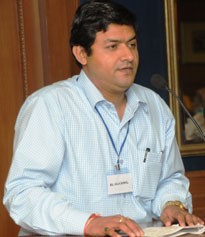
Mr. Arun Dhobal WES Specialist, UNICEF
First I would like to congratulate the members of the consortium on bringing to light this very important aspect of female hygiene. UNICEF has been supporting activities in this MHM for the past 5 years through collaborations with the Rural Development department and various NGOs. We then conducted training on ‘Female Hygiene’ through the SSA with Block Resource Trainers in four districts of Tamil Nadu, orienting them on menstrual hygiene management issues and concepts. UNICEF would always be happy to collaborate with the consortium and other stakeholders to make this initiative a grand success.
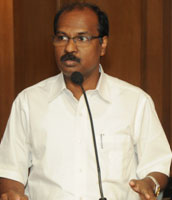
Mr. Manohara Singh Additional Director, Tamil Nadu Corporation for Development of Women
Any successful business needs 1. a stable, constant market, 2. technology, 3. ability to produce, and 4. finance. In Tamil Nadu, all four are available. When it comes to sanitary napkins, we apparently have all the conditions necessary to facilitate a successful business. This is the base of a successful business model, and people who are enterprising can take advantage of it. Mentorship is very important and it must be included in your idea of a sustainable business model.
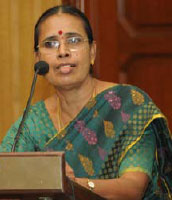
Ms. Vyjayanthi Director / CDO, Slum Clearance Board.
Water and sanitation are issues that should go together. If we can come up with cost effective standardized models for the napkins, we can have the raw materials subsidized by the government. We can distribute through the Public Distribution System, it will be much easier for the urban poor. We should build upon existing setups and models instead of creating new systems.

Mr. Abdul Razzak Additional Director, Total Sanitation Campaign, Chennai.
It was a good move that the Government of India was bringing about this scheme for free and subsidized distribution of napkins to rural girls, and said that they were willing to join hands with the MHMC to make it a success.

Mrs. Anne Josephine Manager, P&A, Pollution Control Board, Chennai.
I would also like to suggest that we go back and look at the ways our mothers taught us, the re-use culture of the past. Perhaps using pads in a hygienic way is a good alternative.

Mr. Devaraj WES Officer, UNICEF.
Teaching sessions should be held for boys and girls as well, because boys also need to be sensitized about menstrual hygiene. From the earliest age, separate toilets need to be provided for boys and girls. In the same way that HIV/AIDS awareness is being mainstreamed, we need MHM awareness also to be widely publicized. An enabling environment should be in place for MHM, including facilities for clean water, waste water disposal, napkin disposal, toilets, and so on.

Dr. Rajam, Additional Director, Tamil Nadu Women’s Development Corporation.
A consortium for Menstrual Hygiene Management is laudable and I appreciate the painstaking efforts of its members. I extend my support to this and also wish them success.
Dr. Amudha Hari, Consultant Ob-Gyn, founder of MITRAS Foundation.
Menstruation is an important and life-changing event. Until then, the girl is equated with the boys and allowed to do as she wants, but afterwards, she is a woman.This transformation and its symbolic value became especially clear to her when she had one girl patient who had not begun to menstruate at 16, and was depressed and insecure about the fact.
If different girls begin to menstruate at different times, and each woman’s cycle is different, Mood swings and body aches were also common during those times, and this makes women vulnerable. The solution for all this unnecessary worry and panic was to know the facts, "because then a girl can be equipped, she knows what to expect and she can manage herself."
Tampons were not a very good option because of the risk of Toxic Shock and because they had been proven to contain carcinogenics. Girls should not use tampons unless and until they were aware of certain basic facts. It was healthy to change pads every 4-6 hours, and so a highly absorbent pad was not necessarily the healthiest option, because at least wetness would prompt girls to change more often. Menstruation, she concluded, in our culture, tended to be “first glorified and then shored into darkness.” Discussion and education were definitely necessary to empower girls, and it was definitely the key component of adolescent education.

Dr. Lucas Dengel Eco Pro, Auroville, Pondicherry.
All interventions should have the “hardware” component- which is a toilet that has adequate size, light, hygiene, running water, menstrual napkins or some instrument to soak up the blood (cloth, tampon, etc.), and some mechanism for disposal. But any intervention should always also have the “software” component: education and information geared towards attitude and behavior change, education for boys and men, and awareness campaigns. Without the software, the hardware is meaningless.

WOMEN ON WINGS NETHERLANDS
The formation of MHMC with a variety of stakeholders and close association of SHGs for both production and usage promotion activities is a very positive point. The production and marketing aspects were very well planned by the team. The team was very happy with the entrepreneurial spirit and motivation for the new field by the SHG members and NGOs. Awareness part of the programme could be taken care of very well by all those engaged in the programme. The fact that the MHMC and all stakeholders were conscious of the quality of napkin, namely it being environmentally friendly is a very good feature.

West Bengal Team
The role of NGOs and CBOs in the field especially in creating awareness among the very large sections of girls in schools and women in rural areas was very educative. It helped more effective reaching out of the MHM practices to the students and other especially in rural areas. The networking of the various stakeholders under the MHMC was also a very good model. He said that the team was impressed by the students in schools and colleges taking the message to the rural areas after the training they had from the MHMC and the University staff and resource persons.



